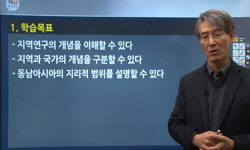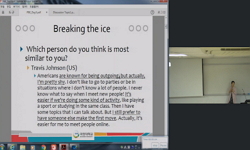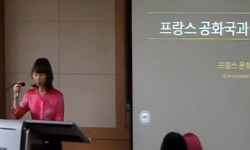외국인 근로자는 직장생활에서 다양한 문화 차이를 경험하게 된다. 이러한 차이는 갈등과 업무 성 과 저해에 영향을 미치게 된다. 외국인 근로자가 문화 차이를 통해 겪게 되는 일-가정 갈...
http://chineseinput.net/에서 pinyin(병음)방식으로 중국어를 변환할 수 있습니다.
변환된 중국어를 복사하여 사용하시면 됩니다.
- 中文 을 입력하시려면 zhongwen을 입력하시고 space를누르시면됩니다.
- 北京 을 입력하시려면 beijing을 입력하시고 space를 누르시면 됩니다.

외국인 근로자의 문화 차이에 따른 일-가정 갈등이 직무소진에 미치는 영향 = The Effects of Work-Family Conflicts on Job Burnout due to Cultural Differences of Foreign Workers
한글로보기https://www.riss.kr/link?id=A105234539
- 저자
- 발행기관
- 학술지명
- 권호사항
-
발행연도
2018
-
작성언어
-
- 주제어
-
KDC
300
-
등재정보
KCI등재
-
자료형태
학술저널
-
수록면
661-670(10쪽)
-
KCI 피인용횟수
1
- DOI식별코드
- 제공처
-
0
상세조회 -
0
다운로드
부가정보
국문 초록 (Abstract)
외국인 근로자는 직장생활에서 다양한 문화 차이를 경험하게 된다. 이러한 차이는 갈등과 업무 성
과 저해에 영향을 미치게 된다. 외국인 근로자가 문화 차이를 통해 겪게 되는 일-가정 갈등도 직무소
진의 증가와 같은 부정적 영향력을 행사하게 될 것이다. 이 연구는 이러한 부정적 영향력을 한국 내
중국인 근로자들이 인지하는 일-가정 갈등과 직무소진의 관계로 설명한다. 한국에 비해 초과근무, 회
식 참여가 적은 문화에 익숙한 중국인 근로자들은 한국의 기업에서 경험하게 되는 이질적 문화에 어
려움을 겪게 된다. 특히 초과근무, 잦은 회식으로 인해 근로자들은 가족과 함께 하는 시간을 충분히
확보하지 못하여 보다 많은 일-가정 갈등을 겪게 된다. 이러한 문제는 한국인 근로자들에게도 나타날
수 있지만, 특히 문화가 다른 중국인 근로자들에게는 보다 큰 어려움이 될 수 있다. 그래서 가정에
소홀하게 되는 문화는 중국인과 같은 외국인 근로자들에게 직무소진과 같은 부정적 결과들을 보다
많이 초래할 것이다. 이 연구는 한국에서 만연하고 있는 추가 근무 등이 가족과의 관계에 부정적 영
향을 미치며, 이러한 현상은 문화가 다른 외국인 근로자들에게 더욱 크게 나타날 수 있음을 설명한다.
다국어 초록 (Multilingual Abstract)
Foreign workers experience various cultural differences in their work life. These differences will affect the conflict and hinder job performance. The work-family conflicts that migrant workers experience through cultural differences will also exert...
Foreign workers experience various cultural differences in their work life. These differences will affect
the conflict and hinder job performance. The work-family conflicts that migrant workers experience through
cultural differences will also exert negative influences such as increased job burnout. This negative
influence is explained by the relationship between work-family conflict and job exhaustion, which are
recognized by Chinese workers in Korea. Chinese workers who are accustomed to the Chinese workplace
culture, which has fewer organizational cultures, such as overtime and dinner party, suffer from the
heterogeneous culture experienced in Korean companies. Especially, due to overtime and frequent dinner
parties in company, workers do not have enough time to spend time with their family members and face
more work-family conflicts. This problem can also be seen in Korean workers, but it can be especially
hard for Chinese workers with different cultures. Therefore, the organizational culture that is neglected in
the home will have negative consequences such as the exhaustion of foreign workers such as Chinese. This
study explains that widespread additional work in Korea has a negative impact on family relationships and
that this phenomenon may be more prominent among foreign workers with different cultures.
목차 (Table of Contents)
- 1. 서론
- 2. 이론적 배경
- 3. 연구방법
- 4. 실증분석
- 5. 결론
- 1. 서론
- 2. 이론적 배경
- 3. 연구방법
- 4. 실증분석
- 5. 결론
- References
참고문헌 (Reference)
1 "https://wenku.baidu.com/view/e509e61fa8114431b90dd80e.html"
2 "http://www.moj.go.kr/HP/COM/bbs_03/ListShowData.do?strNbodCd=noti0097&strWrtNo=223&strAnsNo=A&strN bodCd=noti0703&strFilePath=moj/&strRtnURL=MOJ_40402000&strOrgGbnCd=104000&strThisPage=1&strNbod CdGbn="
3 "http://www.jobkorea.co.kr/goodjob/news/View?News_No=11934&schCtgr=100002&schGrpCtgr=100&Page=3"
4 "http://www.jobkorea.co.kr/GoodJob/News/View?News_No=12360&schCtgr=100002&schGrpCtgr=100&schTxt =%EA%B0%80%EC%A1%B1&Page=1"
5 "http://www.jobkorea.co.kr/GoodJob/News/View?News_No=10638&schCtgr=100002&schGrpCtgr=100&schTxt=%ED%9A%8C%EC%8B%9D&Page=1"
6 "http://laborstat.moel.go.kr/"
7 J. G. Grzywacz, "Work, Family and Mental Health: Testing Different Models of Work‐fa mily Fit" 65 (65): 248-261, 2003
8 J. E. Lee, "The Effect of Organizational Culture Types on Organizational Commitment: Kimb erly & Quinn's Model" 8 : 60-80, 2008
9 A. M. Pines, "Stress and Burnout: The Significant Difference" 39 (39): 625-635, 2005
10 J. H. Greenhaus, "Sources of Conflict between Work and Family Roles" 10 (10): 1985
1 "https://wenku.baidu.com/view/e509e61fa8114431b90dd80e.html"
2 "http://www.moj.go.kr/HP/COM/bbs_03/ListShowData.do?strNbodCd=noti0097&strWrtNo=223&strAnsNo=A&strN bodCd=noti0703&strFilePath=moj/&strRtnURL=MOJ_40402000&strOrgGbnCd=104000&strThisPage=1&strNbod CdGbn="
3 "http://www.jobkorea.co.kr/goodjob/news/View?News_No=11934&schCtgr=100002&schGrpCtgr=100&Page=3"
4 "http://www.jobkorea.co.kr/GoodJob/News/View?News_No=12360&schCtgr=100002&schGrpCtgr=100&schTxt =%EA%B0%80%EC%A1%B1&Page=1"
5 "http://www.jobkorea.co.kr/GoodJob/News/View?News_No=10638&schCtgr=100002&schGrpCtgr=100&schTxt=%ED%9A%8C%EC%8B%9D&Page=1"
6 "http://laborstat.moel.go.kr/"
7 J. G. Grzywacz, "Work, Family and Mental Health: Testing Different Models of Work‐fa mily Fit" 65 (65): 248-261, 2003
8 J. E. Lee, "The Effect of Organizational Culture Types on Organizational Commitment: Kimb erly & Quinn's Model" 8 : 60-80, 2008
9 A. M. Pines, "Stress and Burnout: The Significant Difference" 39 (39): 625-635, 2005
10 J. H. Greenhaus, "Sources of Conflict between Work and Family Roles" 10 (10): 1985
11 J. H. Greenhaus, "Sources of Conflict between Work and Family Roles" 10 (10): 76-88, 1985
12 J. V. Balridge, "Socialogy" Wiley and Sons 1975
13 B. A. Gutek, "Rational Versus Gender Role Explanations for Work-family Conflict" 76 (76): 560-568, 1991
14 C. Maslach, "Maslach burnout inventory" 3 : 191-218, 1997
15 C. Maslach, "Job Burnout" 52 (52): 397-422, 2001
16 L. T. Thomas, "Impact of Family-supportive Work Variables on Work-family Conflict and Strain: A Control Perspective" 80 (80): 6-, 1995
17 A. B. Bakker, "How Job Demands Affect Partners' Experience of Exhausti on: Integrating Work-family Conflict and Crossover Theory" 93 (93): 901-911, 2008
18 S. E. Anderson, "Formal Organizational Initiatives and Informal Workplace P ractices: Links to Work-family Conflict and Job-related Outcomes" 28 (28): 787-810, 2002
19 H. Lingard, "Does Work–family Conflict Mediate the Relationship between Job Schedule Demands and Burnout in Male Construction Professionals and Managers?" 23 (23): 733-745, 2005
20 T. D. Allen, "Consequences Associated with Work-to-family Confl ict: A Review and Agenda for Future Research" 5 (5): 278-308, 2000
21 J. A. Wall, "Conflict and Its Management" 21 (21): 515-558, 1995
22 C. L. Cordes, "A Review and An Integration of Research on Job Burnout" 18 (18): 621-656, 1993
동일학술지(권/호) 다른 논문
-
5세 누리과정 교사용 지도서 분석: 대·소집단 활동의 영역별 분포를 중심으로
- 인문사회과학기술융합학회
- 채미영(Mi Young Chae)
- 2018
- KCI등재
-
IT 융합을 통한 3D 지리 교구 제작과 증강현실 앱 개발
- 인문사회과학기술융합학회
- 임충현(Chunghyun Lim)
- 2018
- KCI등재
-
- 인문사회과학기술융합학회
- 김수철(Soo-Cheol Kim)
- 2018
- KCI등재
-
기숙사 대학생을 위한 집단미술치료 적용 및 효과 - 대학생활 적응 및 주관적 생활만족을 중심으로 -
- 인문사회과학기술융합학회
- 한유진(You-Jin Han)
- 2018
- KCI등재
분석정보
인용정보 인용지수 설명보기
학술지 이력
| 연월일 | 이력구분 | 이력상세 | 등재구분 |
|---|---|---|---|
| 2020 | 평가예정 | 신규평가 신청대상 (신규평가) | |
| 2019-12-01 | 평가 | 등재 탈락 (기타) | |
| 2019-01-01 | 평가 | 등재학술지 유지 (계속평가) |  |
| 2016-01-01 | 평가 | 등재학술지 선정 (계속평가) |  |
| 2014-01-01 | 평가 | 등재후보학술지 선정 (신규평가) |  |
학술지 인용정보
| 기준연도 | WOS-KCI 통합IF(2년) | KCIF(2년) | KCIF(3년) |
|---|---|---|---|
| 2016 | 0.33 | 0.33 | 0.32 |
| KCIF(4년) | KCIF(5년) | 중심성지수(3년) | 즉시성지수 |
| 0.33 | 0.32 | 0.407 | 0.14 |





 KCI
KCI 스콜라
스콜라






